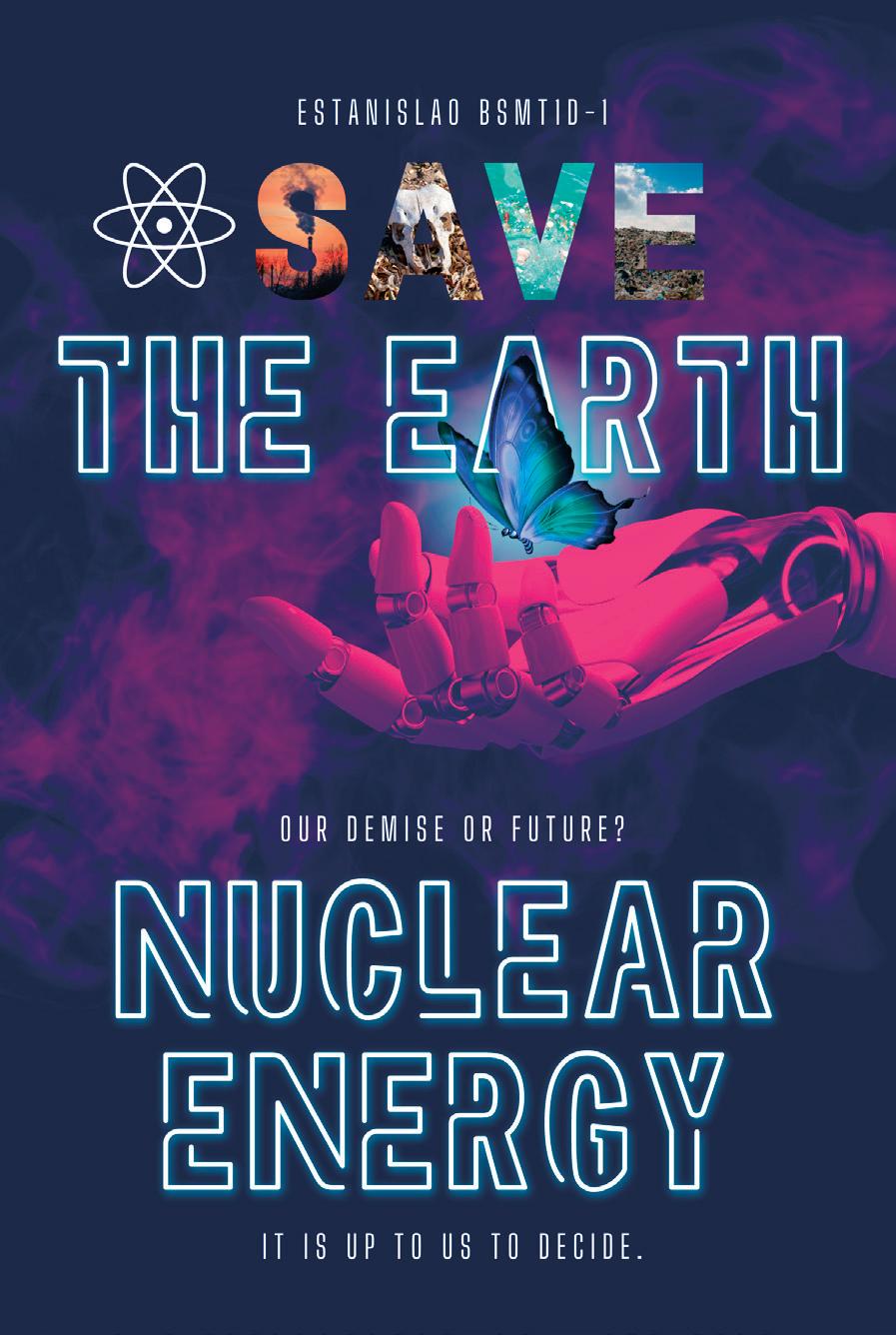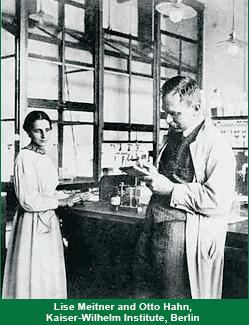
3 minute read
NUCLEAR ENERGY: OUR DEMISE OR FUTURE?
by Maximillian Estanislao
Is nuclear energy the future of humanity? There is a very high chance it will be. Personally, I think it is unavoidable. The way I see it, our fate with nuclear energy branches down into two outcomes. It would be the cause of our very destruction through the use of nuclear weapons, or it would power our houses with clean, safe, and affordable electricity.
Advertisement
Nuclear energy is energy created by the splitting of uranium or plutonium atoms. This process of splitting atoms is called nuclear fission, and it was first discovered in 1938. According to Wellerstein (2008), it was discovered that atoms under nuclear fission can induce further nuclear fissions, creating a self-sustaining fission chain reaction, releasing large amounts of energy in the process.

But shortly after this discovery, WWII started, and nuclear energy was weaponized. Nuclear fission powered the atomic bombs that decimated Nagasaki and Hiroshima. The destruction and suffering that nuclear energy has brought during the war overshadowed its benefits and potential.
Let’s fast forward to the present when nuclear energy is now fully understood and can now be used to power homes. Why should we bother replacing our current source of electricity? The world has been using fossil fuel to generate electricity for the past 150 years. And according to Forbes and the Environmental and Energy Study Institute (EESI), fossil fuels make up 80% of the world’s energy supply.
We burn fossil fuels to generate electricity, and what is released when we burn these? Carbon Dioxide. Coal and oil are primarily used for fossil fuels for electricity. When burned, they release large amounts of carbon dioxide in the air. This is a major contributor to global warming. The only advantage of using fossil fuel is because it is easier to find and very cost effective.
Now, why do I think nuclear energy is a good replacement for fossil fuels?
First is because of its extremely low carbon emission. Having a small carbon footprint and virtually having no effect on the environment, nuclear energy is one of the solutions to climate change. This was proposed by Électricité de France (EDF), a large integrated energy company stationed in the UK.
Second, nuclear energy is very reliable. Nuclear energy can generate huge amounts of energy without needing much fuel, making it very cost effective and efficient. According to EDF, a single uranium fuel pellet, about the size of a peanut, can generate electricity equal to 800 kg of coal, making it much more efficient than our current source of electricity. Using it is a long-term and a low-carbon option. But not only is nuclear energy low carbon, it is also very reliable compared to other low carbon options. Wind and solar energy are not very reliable when there are no winds or sunlight, but nuclear power plants will still function since they do not rely on external factors to operate.
Last, let us address the elephant in the room: safety. There are many concerns regarding the safety of nuclear power plants, especially after the nuclear meltdown of Chernobyl back in 1986, which left the area uninhabitable up to this day. There are also concerns if living near one will cause cancer, or other diseases.
But there are hundreds of nuclear power plants in the world, operating in about 30 countries. Nuclear energy provides 30% of the world’s low carbon electricity. None of them seems to be reporting any catastrophic failure or residents suddenly suffering from a huge wave of cancer diagnoses.
We have developed and studied nuclear energy to the point where it has now become safe enough to be implemented to society. In fact, more people die from air pollution from fossil fuels every year than nuclear energy.
According to Markandya & Wilkinson (2007), 75.77% of electricity production related deaths come from fossil fuels while nuclear energy is responsible for about 0.03% of deaths.
So, to put these numbers into perspective, let’s apply it into a real-world scenario. So, in about 150,000 people, we would expect this many to die if we use the following energy:
If we use fossil fuels, about 46 people will die every year;
If we use nuclear energy, one person will die every 33 years;
Now we know that nuclear energy is much safer, cost-effective, and cleaner than our current forms of electricity, what’s stopping us from shifting towards this path? Irrational fear should not keep us from changing our way of life for the greater good. Change isn’t always a bad thing; in fact change is what we desperately need for the time being.
The world is changing, and fast. For the past century we have abused our planet, and now we have the option to save the planet and ourselves from the effects of climate change and pollution by implementing a much better option for electricity. We should not let fear and greed stop us from changing for the better.
For if we act too late, there may not even be a planet left tomorrow.










